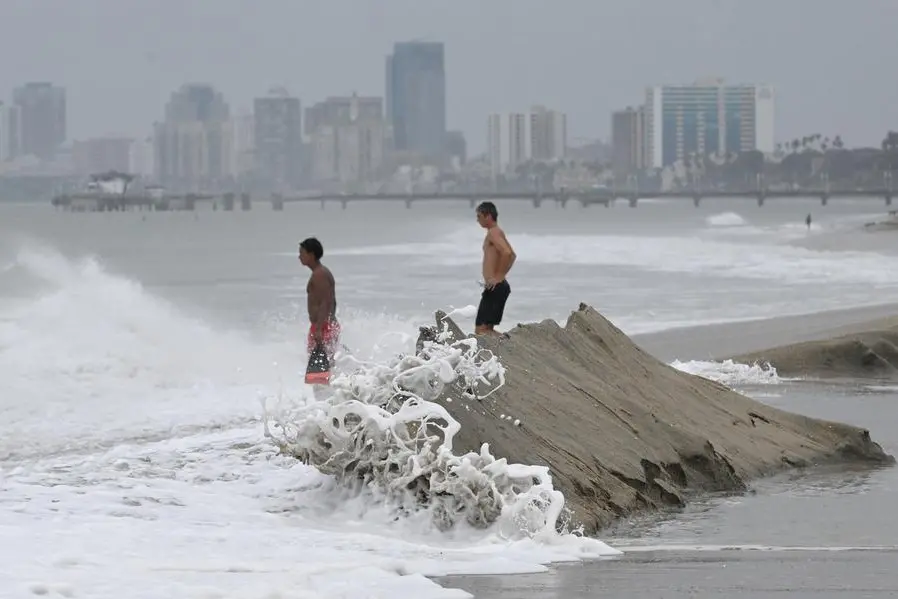PHOTO
Some six billion tonnes of sand and other sediment is extracted from the world's seas and oceans every year, the UN said Tuesday, warning of the devastating toll on biodiversity and coastal communities.
Launching the first ever global data platform on sediment extraction in marine environments, the United Nations Environment Programme (UNEP), warned that the scale of dredging was growing, with dire consequences.
"The scale of environmental impacts of shallow sea mining activities and dredging is alarming," said Pascal Peduzzi, who heads UNEP's analytics centre GRID-Geneva.
He pointed to the effects on biodiversity, as well as on water turbidity, and noise impacts on marine mammals.
The new data platform, Marine Sand Watch, uses artificial intelligence to track and monitor dredging activities of sand, clay, silt, gravel and rock in the world's marine enviroment.
It uses so-called Automatic Identification System (AIS) signals for ships combined with AI to identify the operations of dredging vessels, including in hotspots like the North Sea and the east coast of the United States.
The signals emitted by the vessels allow "access to the movements of every ship on the planet," Peduzzi told AFP, adding that AI makes it possible to analyse the mountains of data gathered.
That process is still in the early stages, and so far, only around 50 percent of vessels are being monitored.
- Six billion tonnes -
But the platform estimates that between four and eight billion tonnes of marine sand and other sediment were extracted every year from marine environments between 2012 and 2019.
"This represents six billion tonnes on average every year, or the equivalent of more than one million dump trucks every day," Peduzzi said.
The UN is aiming to publish the 2020-23 figures by the end of this year.
But it is already clear that these activities are not slowing down, but rather are "taking on gigantic proportions", Peduzzi said.
He warned that the world is approaching the natural replenishment rate of 10-16 billion tonnes of sediment washed into the world's oceans each year.
Extraction vessels are like giant vacuums, cleaning seabeds, and "sterilising" them, he said, adding that this leads to the disappearance of oceanic micro-organisms and threatens biodiversity.
Beyond presenting its figures, the UN said it hoped the new platform could lead to discussions with the sector, pushing businesses to move in a more environmentally friendly direction and improve their extraction practices.
UNEP said there was an urgent need for better management of marine sand resources and to reduce the impacts of shallow sea mining.
It pointed to dramatically varying practices and regulations, urging international rules for dredging techniques.
It also recommends banning sand extraction from beaches due to the important role such beaches play for coastal resilience, the environment and economies.





















